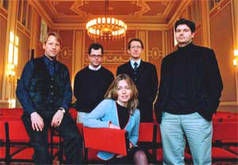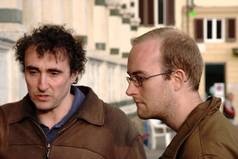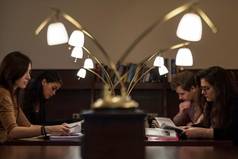
About ECLA
Among German universities, ECLA was unique by virtue of its small size, intimate atmosphere, coherent and imaginative curriculum, and decidedly international composition. Students worked with faculty from different backgrounds on moral, political, epistemic, religious, and aesthetic questions, with the understanding that such questions are naturally and deeply connected. Members of the ECLA community shared the facilities of a residential campus and the cultural riches of one of the most dynamic capitals of Europe. Interactive teaching, a convivial campus atmosphere, and small-group, discussion-centered classes (including seminars and tutorials) created an opportunity for serious dialogue both inside and outside the classroom.
History

The original ECLA was founded in 1999 as a non-profit association (gemeinnütziger Verein) by German intellectuals and entrepreneurs interested in liberal education. The first step of the Verein was to create a summer school. Under the leadership of Stefan Gutzeit, who had studied at Stanford and Harvard, ECLA's first International Summer University was held with great success in 2000 at the Hufeland Campus in Berlin-Buch. That success continued in 2001 and 2002.
The academic year of 2002-3 was very significant for ECLA's development. The college became a non-profit organization (gGmbh), changed management, and introduced its first one-year programme. Under the leadership of Erika Anita Kiss, who brought experience from Harvard and Oxford to the project, ECLA introduced the Foundation Year Programme (which later became the Academy Year Programme). Following extensive interviews in Berlin, Oxford and New York, seven new faculty members were recruited to develop and teach a year-long, problem-centred liberal arts curriculum dominated by philosophy, literature, political theory and visual arts. From the beginning the programme tended to attract bright and broadminded students, ready not just for intensive reading and writing, but also for reflection on the meaning of liberal education. Ongoing discussions among faculty and students about the nature and significance of liberal education have been an essential part of the ECLA culture since then.

In 2003, ECLA's organizational structure changed again. The Endeavor Foundation, led by Julie J. Kidd, was already a major sponsor for ECLA's first full-year programme. The Endeavor Foundation now secured the long term financial stability of ECLA, and decided to support the project with relevant expertise at every step of its development. In New York, a Board of Trustees was formed. Later on, a Council of Advisors was created. In Berlin, Peter Hajnal and Thomas Nørgaard (who had joined the ECLA faculty the year before from Columbia University and Oxford University, respectively) became Programme Directors responsible for curricular development and the introduction of a new one-year programme that continues today as the Project Year.

In 2003-4, ECLA moved to its present campus in Berlin Niederschönhausen, with Richard Shriver acting as ECLA's Provost and Managing Director (2002-5). Shriver, who is now Provost Emeritus, brought invaluable business experience to the project and played a crucial role in the acquisition and renovation of several buildings for creating ECLA's campus and its services, as well as the basic organizational structure. From 2004-7, Laurent Boetsch served as ECLA's President. Boetsch, who is now President Emeritus, brought expertise from American college administration to the project, helped ECLA with the first stage of the accreditation process, and contributed in important ways to ECLA's recruitment efforts and partnership initiatives. Between 2007 and 2012, until the transfer of ownership of ECLA to Bard College, Peter Hajnal and Thomas Nørgaard have served as Co-Deans of the College and of Academic Affairs. They have led the joint faculty work on a new 'value questions' approach to liberal education, and on the BA in Value Studies.

In 2009, ECLA celebrated both the 10th International Summer University and the introduction of the new BA in Value Studies. In February 2011, ECLA received state recognition as a private university by the Senatsverwaltung für Bildung, Wissenschaft und Forschung (Senate Administration of Education, Science and Research) in Berlin.
